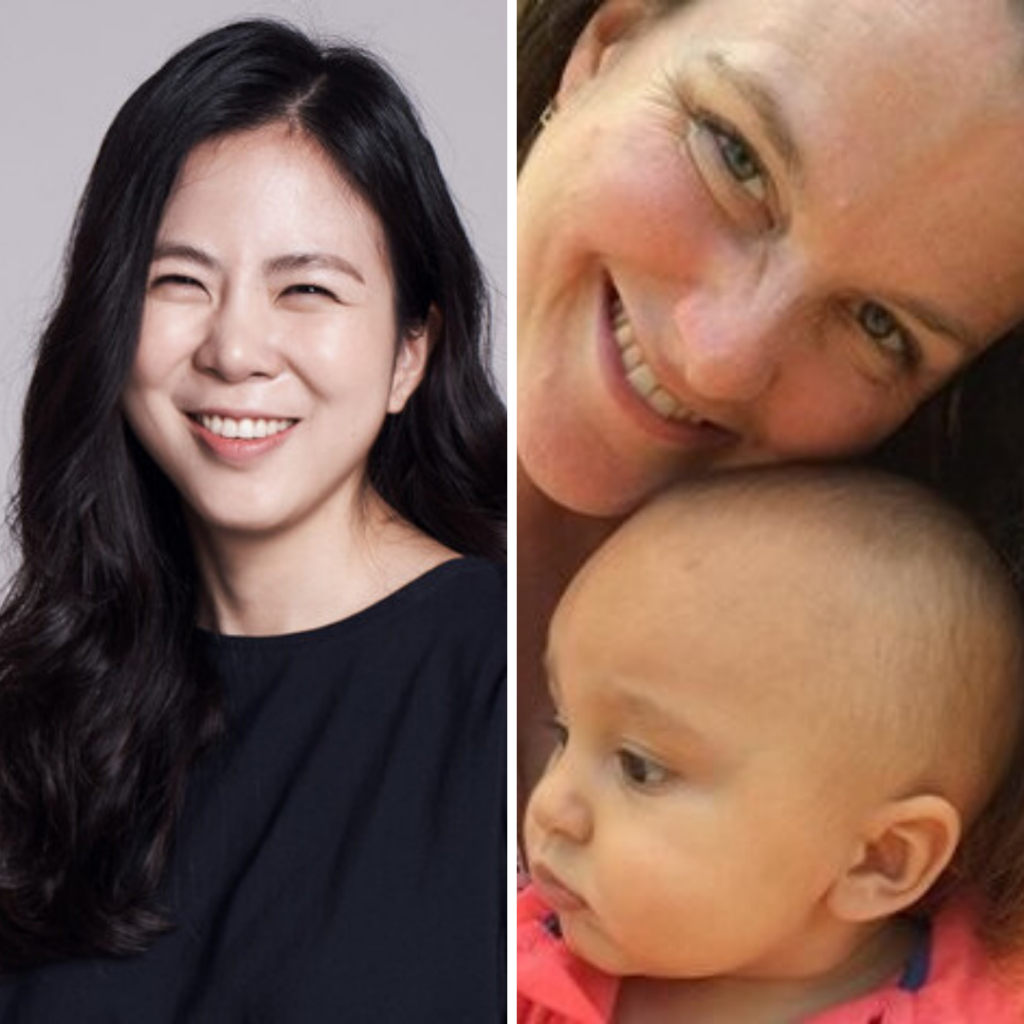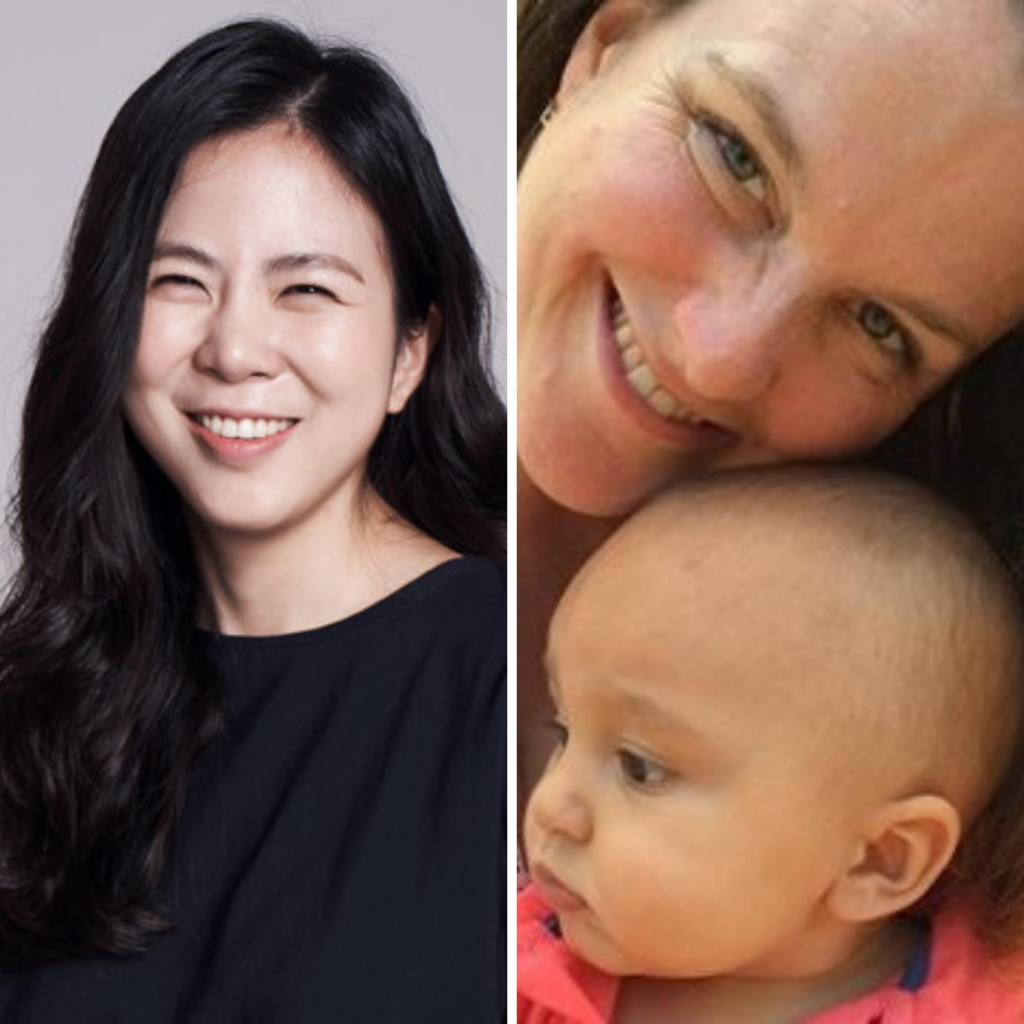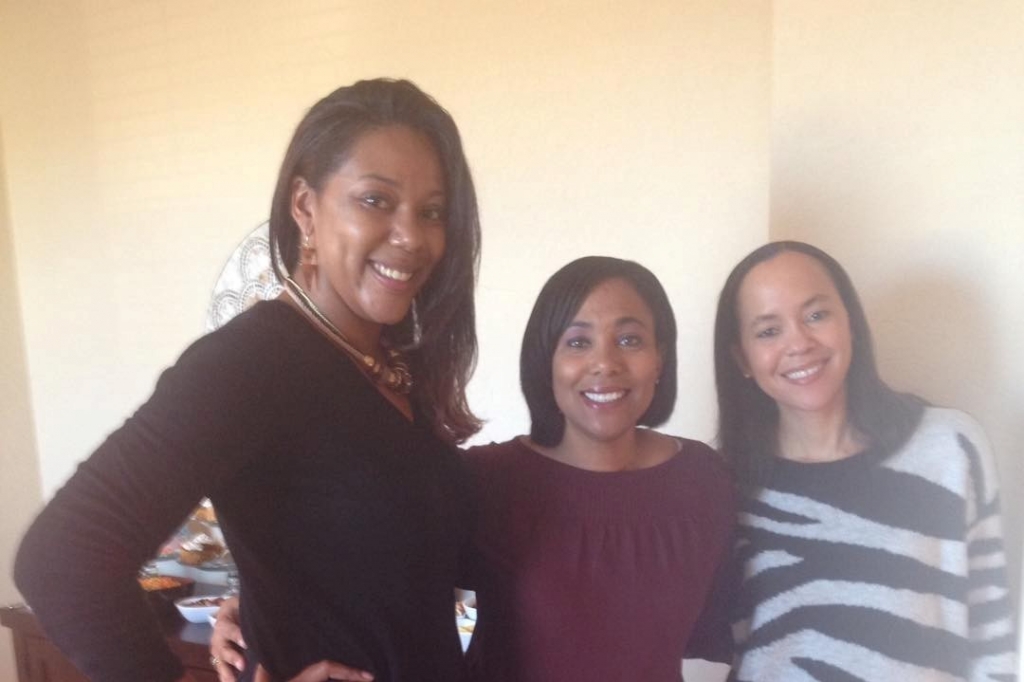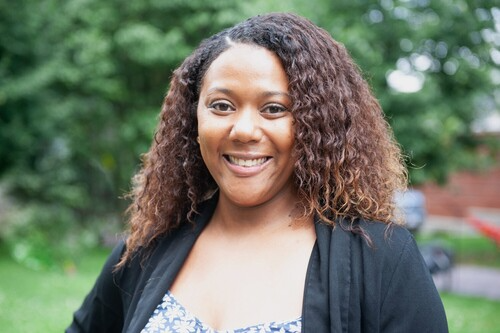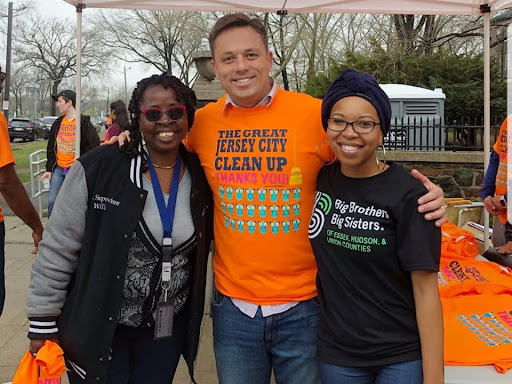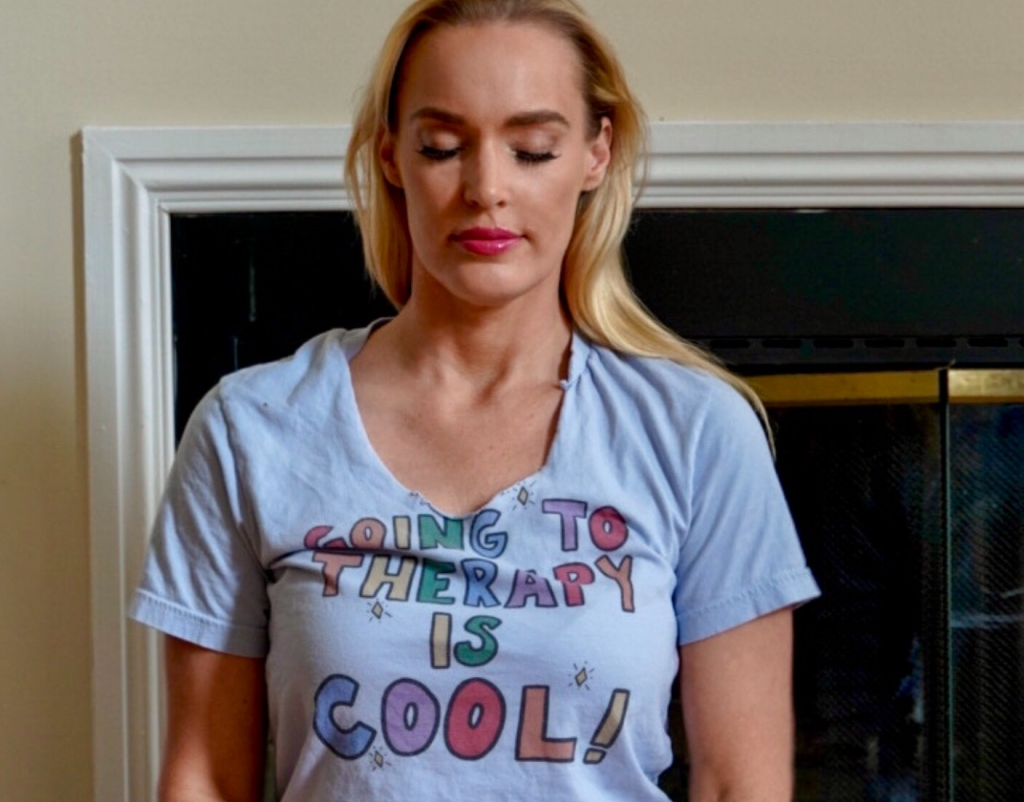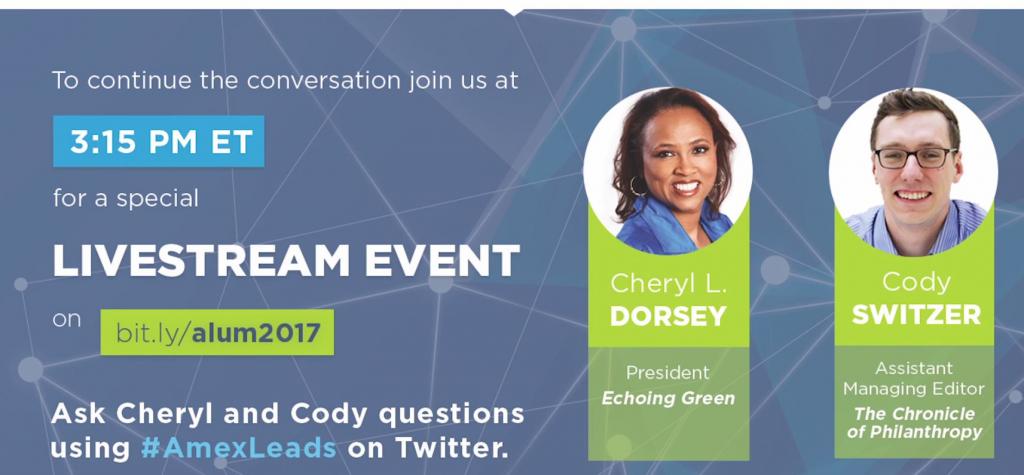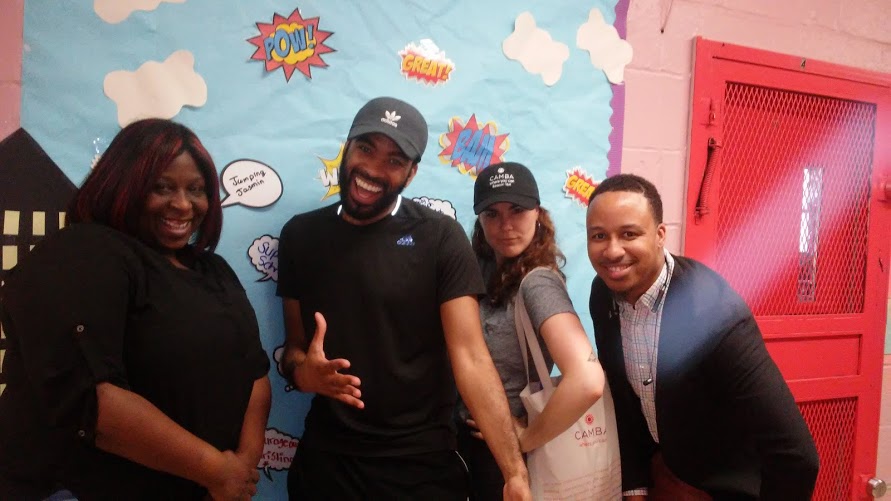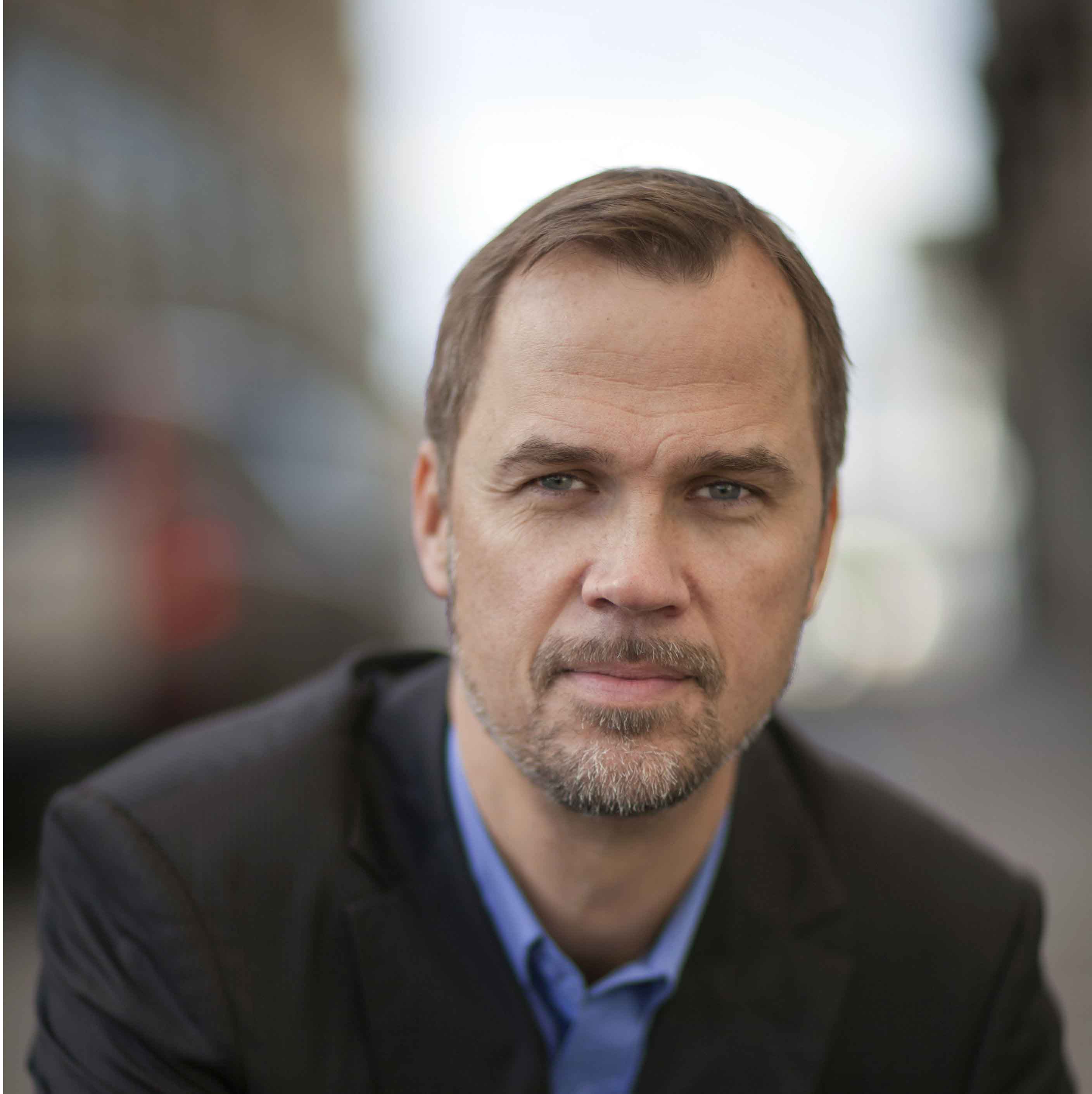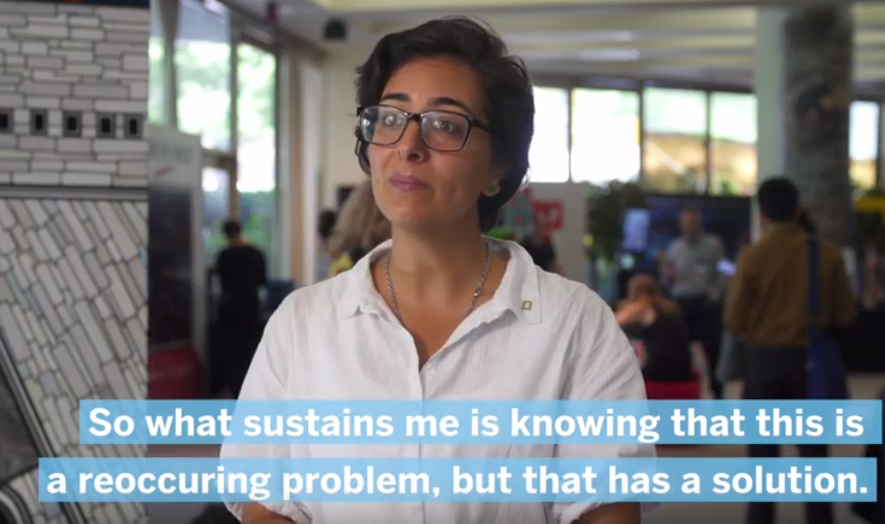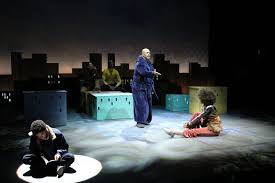
Shawn René is a dramaturg in New York City, directing programs with The Field and serving as the resident dramaturg for The American Slavery Project's Unheard Voices.
In 2020, she was one of five finalists for the American Express Leadership Academy Alumni Award, which honors high-impact leaders making a difference in the communities where they work. The award honors past program participants who have consistently demonstrated strong leadership while making significant impacts on their communities. We spoke with Shawn René to hear how the pandemic is affecting her work and the artists she supports.
How has COVID-19 changed your day-to-day work?
Our mission is to create safe professional development space for individual artists who are creating and producing their own work around New York City. What we offer is fiscal sponsorship for artists, which includes processing donations, and professional development programs to support the business side of their work. We also have a creative space where artists can come in to present their work and get non-directorial feedback, like a salon. We're a pretty high-touch organization, we like to bring people in and meet with them, and that's not happening now, so we’ve had to become online platform experts. 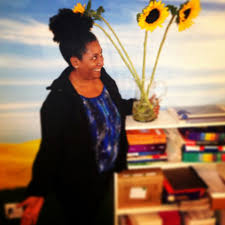
One thing I saw happening when this all first started was that everybody's impulse was, “We've got to jump online, we've got to present and do workshops and readings online.” It’s a lot of pressure. I feel it’s important not to let the pressure get to you. We have to be patient and measured to maintain the excellence we always had.
We are trying to keep the one-on-one relationships with the artists so we are there when they need advice. I do online consultations 30 minutes at a time. And when we are connecting through these online platforms, we have to make sure we still acknowledge everyone's humanity, and our collective trauma happening right now, and our grief. It’s not always just about business, it can’t be. We have to be compassionate towards each other.
“When we are connecting through these online platforms, we have to make sure we still acknowledge everyone's humanity, and our collective trauma, and our grief.”
When we produce a workshop or even just in our interaction with each other as a team, we still have to be able to answer the same questions we were trying to answer before the pandemic, which is: Who is this for? What effect do we want to have? Who is the secondary audience for this? if we can be clear about that, then let's move forward. If we can’t, then let's take a break. That’s an important question we have to ask ourselves all the time.
If you're in unprecedented times, you need an unprecedented response – which is to listen to the needs of the people that you're actually supposed to be serving before you just jump over here and start a fund or something new.
How are you adapting as a leader?
This is the time to figure out and really hone in on what your staff’s specific skills are and what they do best, and try not to do it all yourself. It's really important to always have a diverse staff, not only in terms of skill but also perspective in the world and experience in your office. I'm a big fan of hiring people who are better than I am at something.
Do you see anything in this new way of working that you think the sector should continue to carry forward after the crisis?
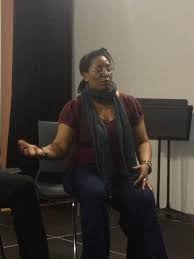 We must carry the principle of creating equity with us. We must also trust that the people who were already doing social justice and equity work in the field are probably the ones who should get resources to do more, to be able to lead and to lead with the money. I find the big institutions often say, “Tell us what you think is going on in the equity or social justice landscape” without offering any resources or power to actually move anything. The organizations that are actually doing the work need to lead with the purse strings a little more than we have.
We must carry the principle of creating equity with us. We must also trust that the people who were already doing social justice and equity work in the field are probably the ones who should get resources to do more, to be able to lead and to lead with the money. I find the big institutions often say, “Tell us what you think is going on in the equity or social justice landscape” without offering any resources or power to actually move anything. The organizations that are actually doing the work need to lead with the purse strings a little more than we have.
This is not unique to the art sector. It’s true of the stimulus packages, it’s true of other sectors. Too many small businesses are getting shut out of the small business funds. Theater people and poor people know how to manage money better than anyone. That is why we’re still here. Believe me. Small theaters, dance companies and individual artists need resources to maintain their excellence and make it available. We are a large part of what’s good in the everyday.
How do we do that: How do we make sure we come out of this thinking and acting differently, and that equity gets built into the future of the sector?
I think in particularly in the arts, long-term planning and financial support for artists has always been lacking. While I hate to say this, the truth is that some organizations will dissolve, they just will. But that doesn't mean the expertise that's there needs to go away. How do those of us that survive pick that up and carry them with us to create the energy to support our whole community?
We need to get out of our scarcity mindset, and form alliances. Right now is the time for organizations that have expertise in similar areas to come together.
We need to be able to work politically at the local, state, and national levels. I think it’s easy for artists to say, “I want to do the creative, I don’t want to do this aspect,” but it’s also true that you’re a citizen of your community and of this country, and we all have a part to play.
What are some things that keep you going right now?
Right now, it’s the shared knowledge that the system under which we have worked and lived for years has always been flawed. People are now saying, we got a problem here. It has always been there. I see a little light in the fact that so many now see it.
A good example is going to graduate school. I had a dream, and I most certainly don't regret the education that I got, but what is problematic is the expense of tuition. You go to Harvard, you pay all of this tuition for a dramaturgy program, and you get out and nobody told you that there is no work! That feels like a set-up. Putting someone in financial jeopardy for the rest of their life is irresponsible.
Going forward, no matter what we do as individuals we also have to collectively look toward taking care of everybody, every day.
What advice do you have for other artists and leaders?
The one thing I never let go of was that no matter what job I had—always in nonprofits but not always in the arts—I always led with, “I am a dramaturg.” I put that into existence, no matter what. I often hear writers say, “I’m a writer,” and the response is, “What have you written?” which immediately dashes that person’s dream and ambition. 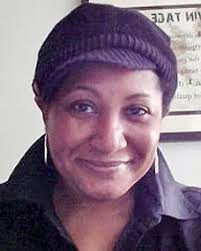
I had a long lull where nothing seemed to be going right, I couldn’t get the work I wanted. But for the last ten years or so, I’ve had more work than I can do because I kept putting that into existence. I tell young aspiring artists this all the time: always say what it is you’re going to be because that is what you are. It doesn’t matter if you wrote in your journal this morning, you are a writer. Don’t let anybody tell you that you’re not.
The other thing that I always tell artists to do is find something to do that is just for you. Artists are always out there talking, performing or doing something. You need that one thing that you do for yourself that nobody else can access. My colleague Judy Tate, of the American Slavery Project, is a really good pianist, but she doesn't play music for anybody else. I'm an endurance cyclist. My bike is set up on a trainer right now in the kitchen so that I can ride it. It gives me space to try to solve some of the problems we're facing right now.
The landscape is rocky and hard, and under-resourced, and you don't want to get yourself in a position where you start to resent the work.
I’ll also say, it’s important to value what you do, and it’s okay to say no. If something is not going to work for you, you can say no. There will be something else, I guarantee. If I had told myself that 20 years ago, I would have been much healthier and less stressed. I think that that is my responsibility now, [to tell others]. All the children are my children, all human beings are my brothers and sisters. When you start to look at it that way and approach it from love, it becomes easier.
____
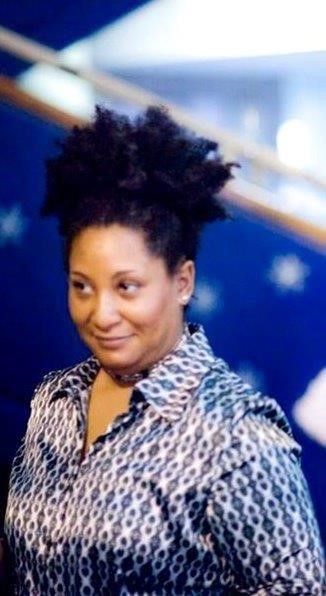 Shawn René Graham is Deputy Director of Programs and Services with The Field, which connects artists with opportunities, resources, funding, advice and information to bring their visions to life. In this role, she provides direct client service to 350+ fiscally sponsored artists/companies, overseeing their $2.5 million in contributions, and initiating and managing strategies for program growth. She has 20 years of experience in the nonprofit arts and higher education sectors. Ms. Graham is also a freelance writer and dramaturg from San Jose, California. She is currently the resident dramaturg of The American Slavery Project's Unheard Voices, the Literary Director for the Classical Theatre of Harlem’s Future Classics Series and Playwright’s Playground, and founder of All Creative Writes, an artistic assistance service designed to provide individual artists and performing arts organizations with administrative, fundraising and writing support. Ms. Graham holds degrees from the California State University, Los Angeles and the American Repertory Theatre Institute at Harvard University. She joined The Field in 2012 and lives in Bronx, NY.
Shawn René Graham is Deputy Director of Programs and Services with The Field, which connects artists with opportunities, resources, funding, advice and information to bring their visions to life. In this role, she provides direct client service to 350+ fiscally sponsored artists/companies, overseeing their $2.5 million in contributions, and initiating and managing strategies for program growth. She has 20 years of experience in the nonprofit arts and higher education sectors. Ms. Graham is also a freelance writer and dramaturg from San Jose, California. She is currently the resident dramaturg of The American Slavery Project's Unheard Voices, the Literary Director for the Classical Theatre of Harlem’s Future Classics Series and Playwright’s Playground, and founder of All Creative Writes, an artistic assistance service designed to provide individual artists and performing arts organizations with administrative, fundraising and writing support. Ms. Graham holds degrees from the California State University, Los Angeles and the American Repertory Theatre Institute at Harvard University. She joined The Field in 2012 and lives in Bronx, NY.

